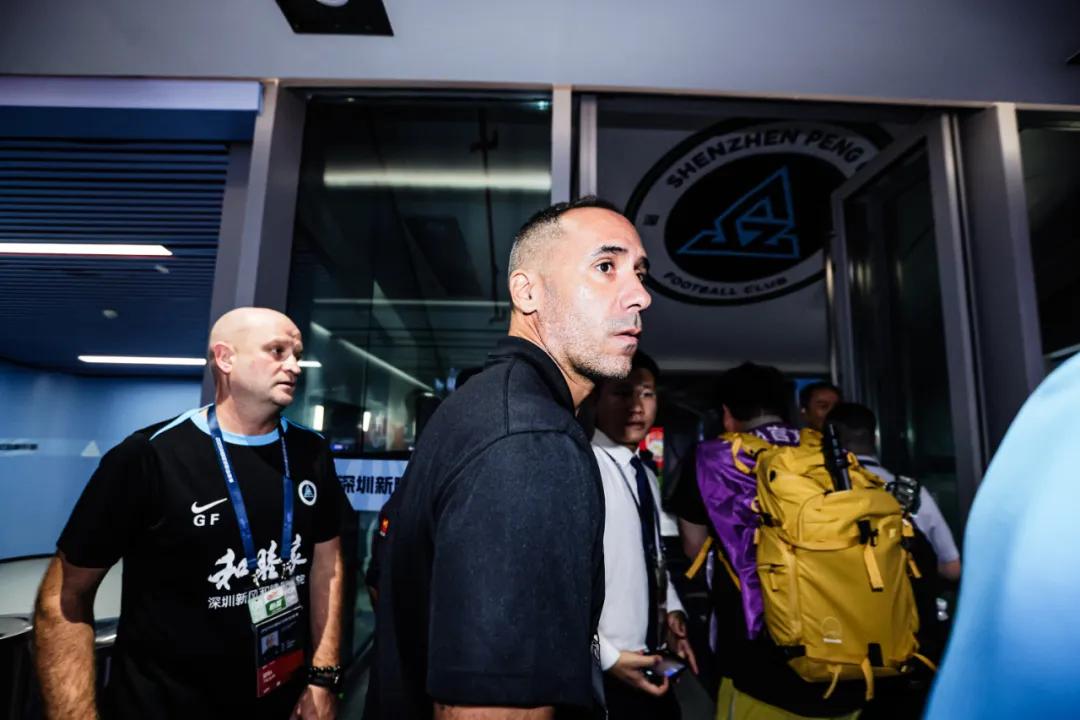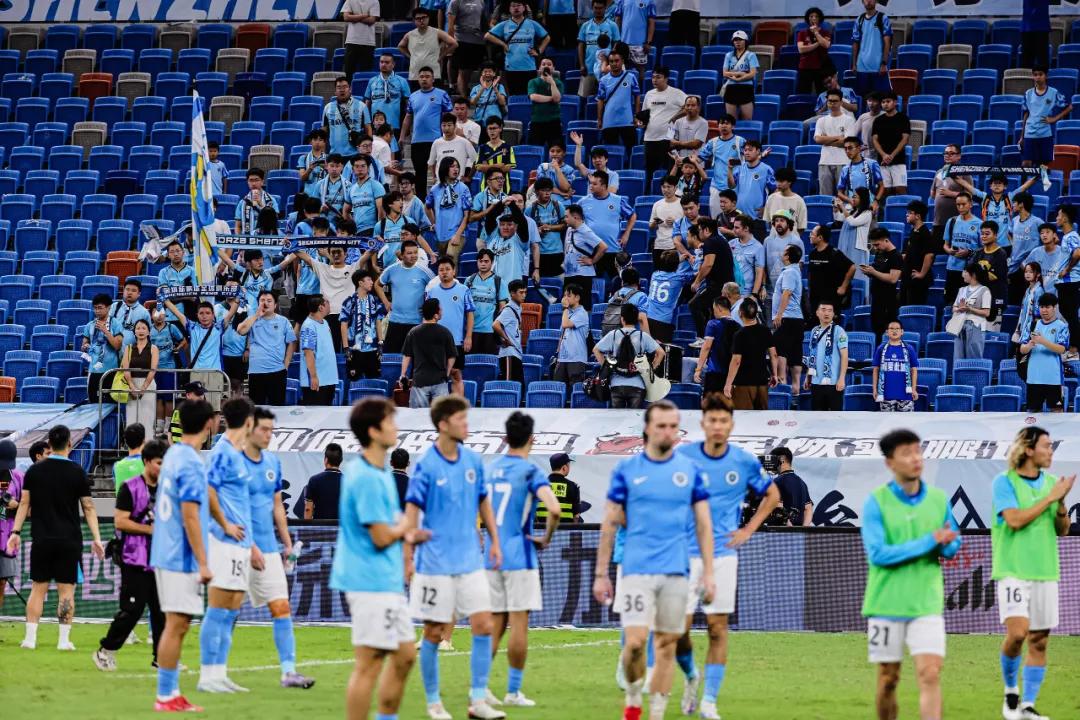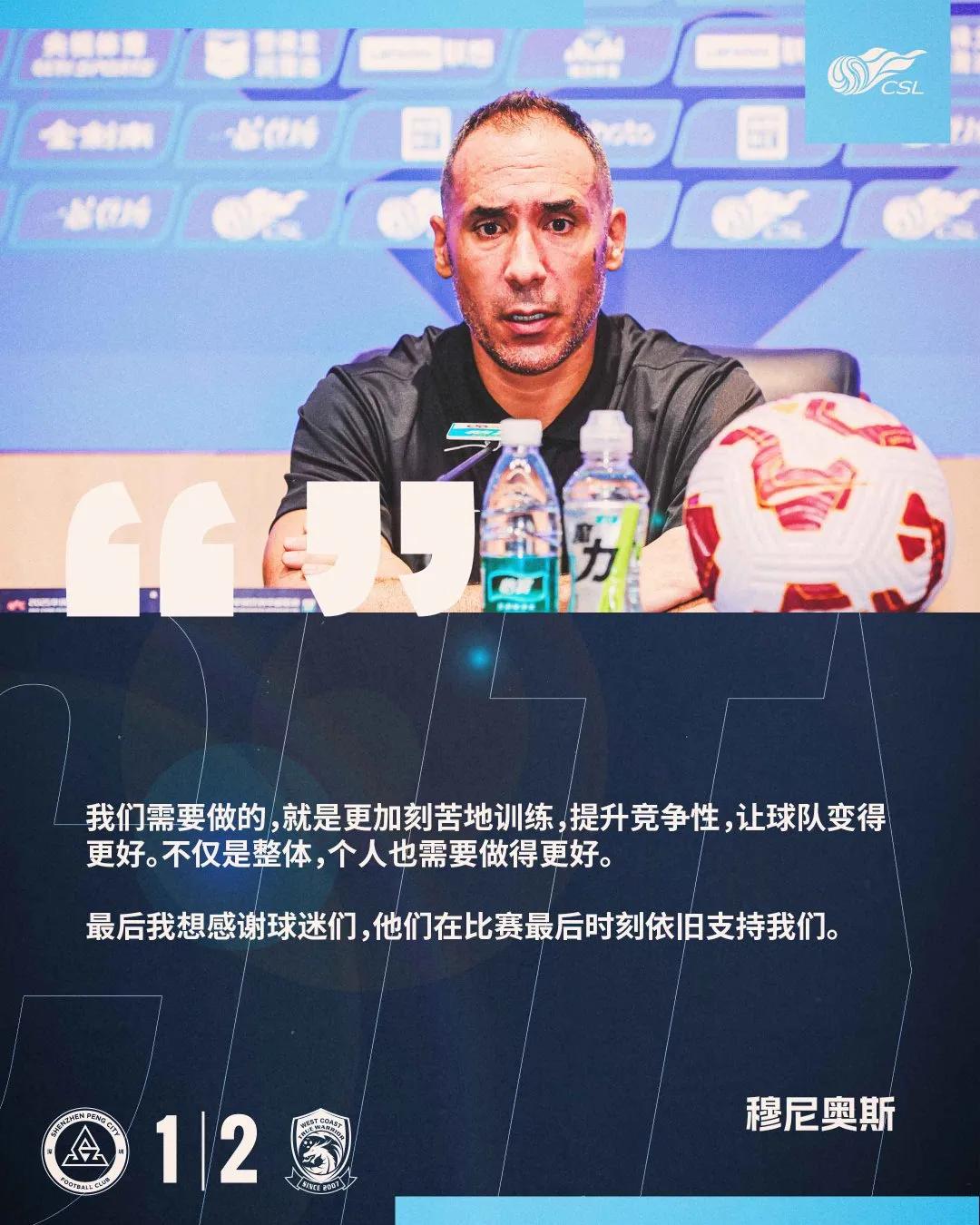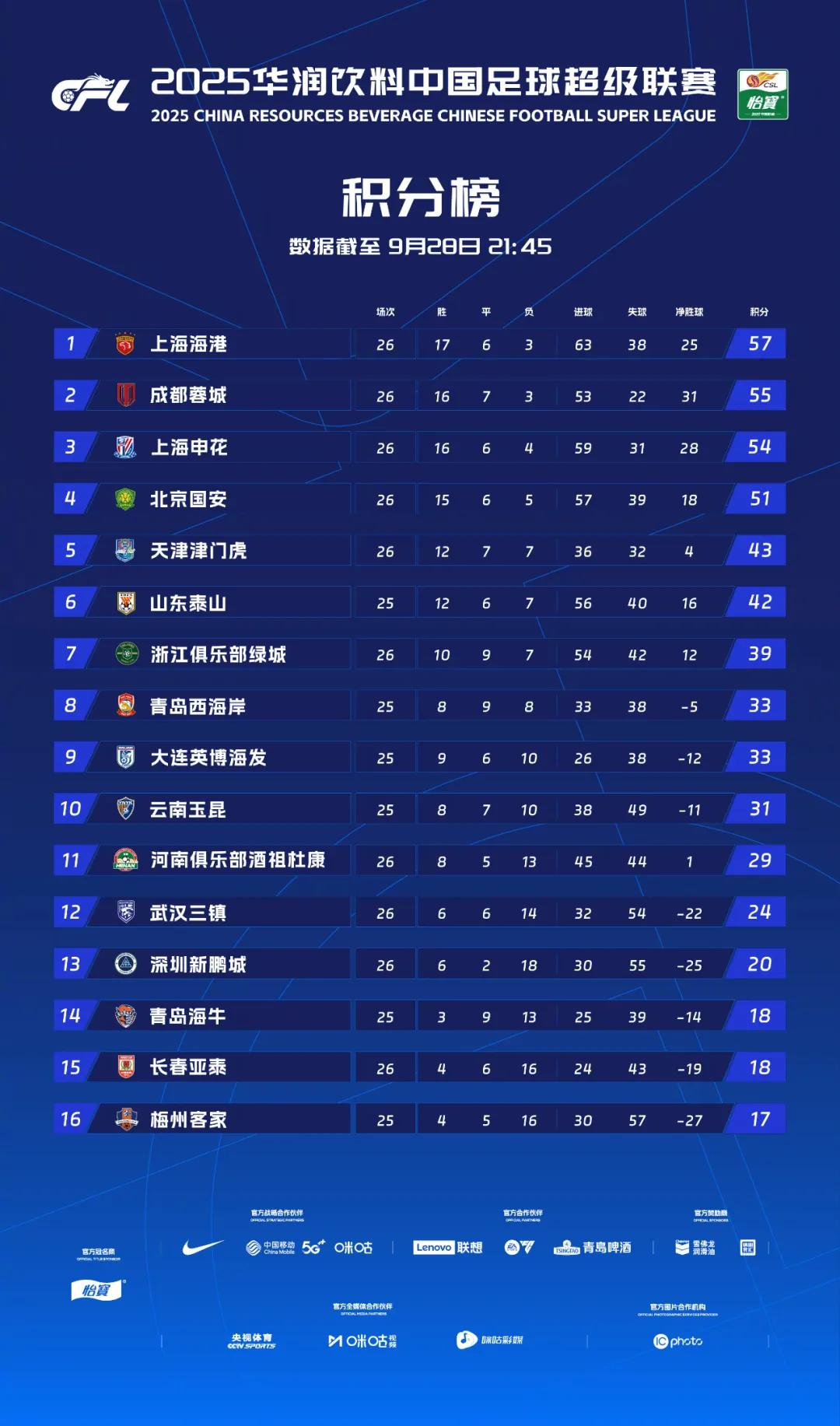A coaching change fails to bring improvement, what’s happening with Shenzhen Xinpengcheng?

Reporter Wang Wei reports At 19:35 on September 28, Shenzhen Xinpengcheng faced Qingdao West Coast at home in the last game of this CSL round. In this key relegation clash, although Wesley scored early in the 5th minute, two errors by Xinpengcheng allowed the opponent to score twice and overturn the match, losing critical 3 points. While still ranked fourth from bottom with 20 points, the difficult remaining fixtures mean Xinpengcheng’s relegation pressure is mounting.
Since Spanish coach Muniz took charge, Xinpengcheng has recorded 2 wins and 8 losses in 10 matches, losing all 5 away games. They say changing a coach is like changing a knife, but this coaching switch brought no improvement; instead, the team has slid deeper into the relegation zone. So, what exactly is wrong with Xinpengcheng?

On July 7, just two and a half months ago, Shenzhen Xinpengcheng announced the departure of Italian coach Latanzi, who had taken over in October last year but left in under a year. Then, on July 10, the club announced the appointment of Spanish coach Muniz, who previously served briefly as an assistant coach for China’s national team, as the new head coach.
The announcement of the original coach’s departure and new coach’s arrival within three days was clearly pre-planned by the club. However, judging by Xinpengcheng’s performance in the following 10 league matches, this mid-season coaching change failed to meet expectations, with the team directly sliding into the relegation zone. With too little time for Muniz to make adjustments and facing tough matches right away, the pressure led to 8 losses in 10 games.

According to information from the club and team sources, this coaching change has yet to meet internal and external expectations, which is why the club recently invited former national team assistant Chen Tao to join as Muniz’s assistant coach.
Looking back at last season’s relegation fight, the team also underwent a coaching change in October, when Italian coach Latanzi implemented a pragmatic counter-attacking strategy that helped the team secure survival at the last moment.
At the start of this season, after being confirmed as head coach, Latanzi planned a new tactical approach focused on possession-based, all-out attack and defense. However, given the squad's composition and bench strength, the team was not equipped to execute this style, resulting in fluctuating results and ultimately landing in the relegation zone. Latanzi’s abandonment of the previous season’s tactics led to a collapse, and after three consecutive defeats, he resigned due to unsatisfactory results.
Actually, after Muniz took over, Xinpengcheng enjoyed a brief honeymoon period, with his first match yielding an impressive 4-0 victory over Qingdao Hainiu. Coupled with new signing Wesley’s explosive debut, expectations for the team after the coaching change were high.

However, Muniz repeated a similar mistake as Latanzi did earlier this season. After Wesley’s high-level performances, Muniz aimed to overhaul the team’s tactics. As a Spanish coach who values technical skills and favors possession football, Muniz’s preferred style did not progress smoothly. Against mid-tier teams like Qingdao Hainiu and Meizhou Hakka, Xinpengcheng could maintain some control, but against stronger opponents, their performance was severely limited.
“We do aspire to play possession football and fast transitions, but based on the current players’ characteristics, we are not yet capable of fulfilling these tactical demands,” several Xinpengcheng players told reporters.
From this year’s and last season’s transfers, Xinpengcheng’s squad structure does not meet the standards of a mid-table CSL team, which is the root cause of their current predicament. Moreover, the club’s efforts in recruiting quality players and developing young talent have been insufficient, leading to mediocre competitiveness on the field. Although Wesley, Liao Lisheng, and Li Ning were signed during the second transfer window, the short integration time also hampered tactical cohesion. “This is a key issue to address in upcoming matches,” the club acknowledges the importance of recruitment.
“Our overall strength and bench depth rank in the lower-middle tier of the CSL. Although tactically we want to play possession football, the current squad cannot support this style, so focusing on defense and counterattack is essential,” Muniz recognized this during the critical relegation battle.


Changing the coach is a systemic reform for the club. Since Muniz took over, expectations for the team’s overall system adjustment have been high. However, in the past 10 matches, the team mostly relied on new signing Wesley’s performances to maintain some vitality, with no significant changes elsewhere.
Wesley’s debut for Xinpengcheng was against Qingdao Hainiu, where the Brazilian scored a hat-trick, raising hopes for a team turnaround. However, as the league progressed, Wesley often went quiet. More worrying, when Wesley underperformed, no other players stepped up.
In the last 10 matches, Shenzhen scored only 13 goals in total, with Wesley accounting for 9 of them — a striking 69.2% of the team’s goals! The team has frequently discussed solutions for when Wesley is tightly marked, but most of the time, the problem remains unresolved.

To break this deadlock, Muniz tried various methods, such as switching from a 5-4-1 to a 4-3-3 formation. Besides demanding De Leongso, Garcia, and Wesley form an attacking trident, he also asked Liao Lisheng to support his attacking teammates, especially Wesley. Though opinions differ on whether Xinpengcheng can turn things around, Muniz insists Wesley is not carrying the attack alone. He has communicated this repeatedly to players and media, emphasizing that scoring is a team responsibility. “Goals are not Wesley’s alone; they are a collective target,” Muniz said.
Recently, Shenzhen Xinpengcheng announced that former national team assistant coach Chen Tao joined as Muniz’s assistant, a move seen as a valuable addition to the club’s management.
Since Muniz’s appointment, the team has lost 8 matches, and the new coaching staff has yet to develop strong chemistry with the players. The rushed timing of the coaching change left Muniz little time to adjust, and the continuous matches put the new staff in a difficult position.
The 2 wins and 8 losses in 10 matches clearly show that the new coaching team is still exploring and transitioning in understanding the squad and building tactics. Along with new faces in fitness, assistant, and goalkeeping coaches, the arrival of Chen Tao brings further changes. Therefore, seeing a clear improvement in Xinpengcheng may still take some time.

For Xinpengcheng, currently in the relegation zone, there is no room for further trial and error as time is running out. Looking at the remaining schedule, the away match against Wuhan Three Towns is crucial and likely to decide the team’s survival prospects this year. Additionally, Xinpengcheng will face Beijing Guoan, Shanghai Shenhua, and Chengdu Rongcheng. The team aims to secure all 3 points against Wuhan Three Towns and not give up points against the top teams. “We must first perform well against teams of similar strength and strive to earn points against strong opponents,” the players have planned.
For Xinpengcheng now, the tactical focus is on improving efficiency in the attacking third to score more goals, while also maintaining heightened concentration in defense to guard against opposing forwards.
Many attribute Xinpengcheng’s poor results to the quality of domestic and foreign signings and coaching staff, but these are merely surface symptoms. The team’s performance directly reflects the club’s investment and management, with management being the most critical factor. As a Chinese club invested and managed by a foreign enterprise group, its operational and management processes differ significantly from domestically owned clubs. Despite substantial investment, the team has struggled in relegation battles for two consecutive CSL seasons, indicating many areas needing reflection and improvement.











 Links
Links
 Contact
Contact
 App
App


